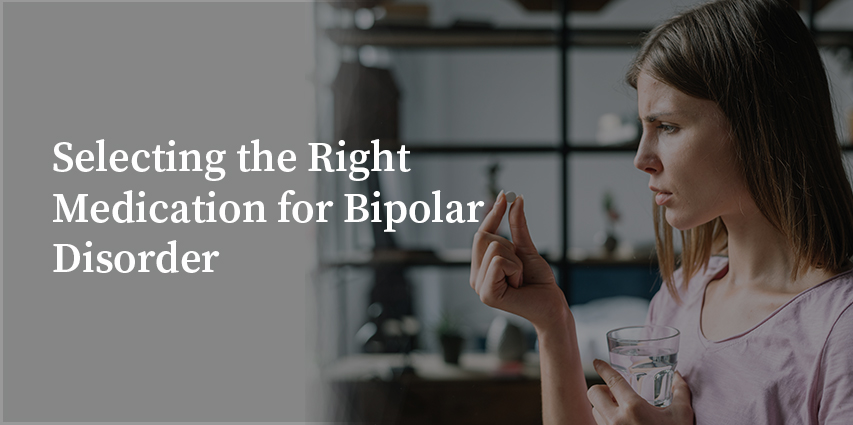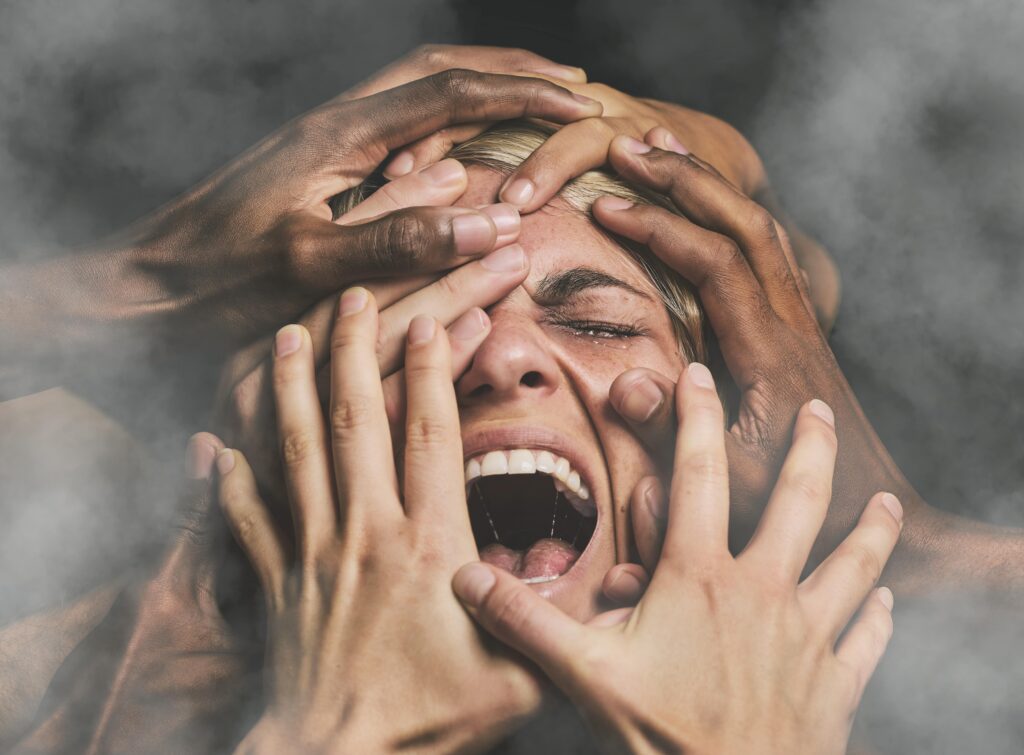Selecting the Right Medication for Bipolar Disorder
Selecting the Right Medication for Bipolar Disorder Managing bipolar disorder (BPD) is no easy journey and in many cases requires the use of pharmaceutical medication to minimize the intense symptoms and actions to protect the individual from harm to themselves and others. Because a person typically starts medication during an intense period of mania or depression, decisions are made quickly without properly understanding the benefits and potential risks of taking on medication. Typically, psychiatrists will prescribe bipolar disorder medication based on the symptoms presented, their medical training, and experience. There is a stage in the beginning where they will prescribe medication and observe how the patient reacts. If it works, then they will keep you on the medication and dosage. If it does not help the patient stabilize, then they will adjust the dosage or try a different drug or even drug type. This process of determining the right “cocktail” of drugs to stabilize the individual yields strong side effects and is designed to lessen or completely mute symptoms. They do not, however, cure the root cause, which is a combination of genetic components and external factors like stress, trauma, and lifestyle choices. In this post, we’ll explore the various classes of medications used to manage bipolar disorder, examples of commonly prescribed drugs, potential side effects, and the crucial role of lifestyle changes. When medications are combined with practices like sleep hygiene, movement, mindfulness, and community support, one begins the process of healing and potentially liberating oneself from medication partially if not completely. Types of Bipolar Disorder Medication Mood Stabilizers If you have bipolar disorder, mood stabilizers will likely be at the core of your medication treatment. These medications help to keep the extremes of mood in check, reducing both manic and depressive episodes by primarily affecting neurotransmitters and receptors. Let’s discuss some of the most commonly prescribed mood stabilizers in the US. Lithium: This is a strong medication for bipolar treatment, especially for mania. Lithium requires close monitoring by a psychiatrist because it can affect kidney and thyroid function. It is effective, yes, but it’s also a commitment. Side effects include weight gain, tremors, frequent urination, and long-term concerns with kidney function. Valproate (aka Depakote): Valproate is another go-to mood stabilizer, especially when lithium is not effective. It’s particularly effective in treating manic episodes. Side effects include weight gain, liver issues, drowsiness, and hair thinning. Regular liver function tests are necessary. While these medications can be lifesavers, they have strong side effects that can be unpleasant to bear. It’s important to openly communicate with your doctor about any side effects you experience so that adjustments can be made in a timely fashion. Anticonvulsants Anticonvulsants were originally developed to treat epilepsy but have proven effective in stabilizing mood, particularly for bipolar depression. Commonly prescribed medications for this class include: Lamotrigine (aka Lamictal): Particularly helpful in preventing depressive episodes, lamotrigine is favored by many because it has fewer side effects compared to other medications and is not as addictive as other medications listed on this blog. Side effects include poor concentration, weak memory, poor coordination, anxiety Carbamazepine (aka Tegretol): This anticonvulsant is primarily used to manage mania and is an option when other treatments fail. Side effects include dizziness, drowsiness, and potential impact on liver function. By now, it is apparent that these medications address mere symptoms and the side effects pose serious challenges for daily life. Presenting patients with only two options of uncontrolled mania/depression or being severely medicated is not a pleasant experience. We will get to a third more empowering option after discussing antipsychotics. Antipsychotics Antipsychotics are also commonly prescribed for acute manic or mixed episodes. From an experiential perspective, they slow down racing thoughts, facilitate falling asleep, and lower severe anxiety. They also serve as maintenance therapy, particularly if mood stabilizers alone aren’t enough. A few include Risperidone (aka Risperdal): this antipsychotic is prescribed particularly during manic or mixed episodes. It helps reduce symptoms like agitation, irritability, and rapid thoughts by balancing dopamine and serotonin levels in the brain. Common side effects include weight gain, sedation, constipation, and dizziness, while serious risks may include tardive dyskinesia and metabolic changes. Olanzapine (aka Zyprexa): Often used during manic episodes, this medication is highly potent for sleep and is also notorious for significant weight gain and metabolic issues.Side effects include weight gain, increased blood sugar levels, and severe drowsiness. Quetiapine (aka Seroquel): This medication is increasingly popular and effective for both mania and depression. It is also a powerful sedative. Side effects also include weight gain and increased risk of metabolic syndrome. Aripiprazole (aka Abilify): This medication is known for having fewer side effects than other antipsychotics as it is a lighter option for mania or mixed episodes. Side effects include restlessness, weight gain, and sleep disturbances. Antidepressants Depressive episodes in bipolar disorder are tricky because they can tip the patient over to hypomania and even mania, especially if they are used without mood stabilizers. We publish a more nuanced conversation about BPD and antidepressants in future blog posts. A Warning Before Starting Medication Every medication comes with unpleasant side effects, but what works wonders for one person might not for another. The journey toward finding the right medication will likely include some trial and error, which is also an unpleasant experience. But this experimentation process comes with two major risks: (1) these medications are habit forming and are difficult to abandon and (2) psychiatrists in the US are trained on which medications to prescribe based on a cluster of symptoms, but today (2024) they receive little to know training on how to safely get a patient off! There is little guidance on properly tapering off since going cold turkey runs a high risk of severe withdrawal symptoms and the relapsing into mania or depression. This is why it is vital to work with a healthcare provider who studies your health holistically. A good doctor will ask about lifestyle choices like diet, exercise, sleep, stress, and relationship quality before



